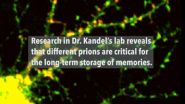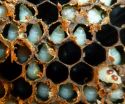Researchers find mass killings, school shootings are contagious
2015-07-02
(Press-News.org) Mass killings and school shootings in the U.S. appear to be contagious, according to a team of scientists from Arizona State University and Northeastern Illinois University.
Study author Sherry Towers, research professor in the ASU Simon A. Levin Mathematical, Computational and Modeling Sciences Center, explained, "The hallmark of contagion is observing patterns of many events that are bunched in time, rather than occurring randomly in time."
Her team examined databases on past high-profile mass killings and school shootings in the U.S. and fit a contagion model to the data to determine if these tragedies inspired similar events in the near future.
They determined that mass killings - events with four or more deaths - and school shootings create a period of contagion that lasts an average of 13 days. Roughly 20 to 30 percent of such tragedies appear to arise from contagion.
Their paper, "Contagion in Mass Killings and School Shootings," appears in the July 2 edition of PLOS ONE.
The analysis was inspired by actual events in Towers' life.
"In January of 2014 I was due to have a meeting with a group of researchers at Purdue University," she said. "That morning there was a tragic campus shooting and stabbing incident that left one student dead. I realized that there had been three other school shootings in the news in the week prior, and I wondered if it was just a statistical fluke, or if somehow through news media those events were sometimes planting unconscious ideation in vulnerable people for a short time after each event."
The researchers noted that previous studies have shown that suicide in youths can be contagious, where one suicide in a school appears to spark the idea in other vulnerable youths to do the same.
"It occurred to us that mass killings and school shootings that attract attention in the national news media can potentially do the same thing, but at a larger scale," Towers said. "While we can never determine which particular shootings were inspired by unconscious ideation, this analysis helps us understand aspects of the complex dynamics that can underlie these events."
On average, mass killings involving firearms occur approximately every two weeks in the U.S., and school shootings occur on average monthly. The team found that the incidence of these tragedies is significantly higher in states with a high prevalence of firearm ownership.
INFORMATION:
The research team was composed of Towers; ASU Regents' Professor Carlos Castillo-Chavez, School of Human Evolution and Social Change in the College of Liberal Arts and Sciences; ASU Applied Mathematics for the Life and Social Sciences graduate student Andres Gomez-Lievano; ASU assistant professor Anuj Mubayi, Math and Natural Sciences Division, New College of Interdisciplinary Arts and Sciences; and undergraduate student Maryam Khan of Northeastern Illinois University's Mathematics Department.
Source contact:
Research Professor Sherry Towers
Arizona State University
Simon A. Levin Mathematical, Computational and Modeling Sciences Center
smtowers@asu.edu
(630) 308-8187
General media contact:
Rebecca Howe
Arizona State University
School of Human Evolution and Social Change
rebecca.howe@asu.edu
(480) 727-6577
ELSE PRESS RELEASES FROM THIS DATE:
2015-07-02
Climate change is forcing fish out of their current habitats and into cooler waters and many more species will soon be affected if climate goals are not met, say scientists.
An international team of researchers compared the future of the oceans under two climate change scenarios. In one scenario, we limit atmospheric warming to two degrees by 2100, as outlined by the Copenhagen accord. In the other, we continue with the current approach, which researchers say would cause a five-degree increase in atmospheric temperatures. They say if warming continues unchecked, fish ...
2015-07-02
A new study has discovered mysterious behaviour of a material that acts like an insulator in certain measurements, but simultaneously acts like a conductor in others. In an insulator, electrons are largely stuck in one place, while in a conductor, the electrons flow freely. The results, published today (2 July) in the journal Science, challenge current understanding of how materials behave.
Conductors, such as metals, conduct electricity, while insulators, such as rubber or glass, prevent or block the flow of electricity. But by tracing the path that electrons follow ...
2015-07-02
Researchers at Vanderbilt University and the National University of Singapore have determined the structure of a human monoclonal antibody which, in an animal model, strongly neutralizes a type of the potentially lethal dengue virus.
The finding, reported today July 2 in the journal Science, could lead to the first effective therapies and vaccines against dengue, a complex of four distinct but related mosquito-borne viruses that infect about 390 million people a year and which are a leading cause of illness and death in the tropics.
"Scientists in the antibody discovery ...
2015-07-02
NEW BRUNSWICK, N.J., - July, 2, 2015 - Johnson & Johnson (NYSE: JNJ) announced today that scientists at Beth Israel Deaconess Medical Center (BIDMC), Crucell Holland B.V, one of the Janssen Pharmaceutical Companies of Johnson & Johnson (Janssen), and several other collaborators today published results from a preclinical study of an HIV vaccine regimen used in in non-human primates. The study, published in the online edition of Science, suggests that a "heterologous prime-boost" vaccine regimen--which first primes the immune system, then boosts the immune system to increase ...
2015-07-02
Doughnuts, electric current and quantum physics - this will sound like a weird list of words to most people, but for Sebastian Huber it is a job description. ETH-professor Huber is a theoretical physicist who, for several years now, has focused his attention on so-called topological insulators, i.e., materials whose ability to conduct electric current originates in their topology.
The easiest way to understand what "topological" means in this context is to imagine how a doughnut can be turned into a coffee cup by pulling, stretching and moulding - but without cutting ...
2015-07-02
Hamilton, ON (July 2, 2015) - Two new studies led by researchers from the Farncombe Family Digestive Health Research Institute at McMaster University show that transplantation of fecal matter may be a useful tool in the fight against ulcerative colitis (UC).
Ulcerative colitis is a chronic, debilitating inflammatory bowel condition characterized by symptoms including bloody stools, diarrhea, abdominal pain, weight loss and malnutrition. It results from the development of abnormal immune responses to the normal bacteria in the digestive tract. It is difficult to treat ...
2015-07-02
NEW YORK, NY (July 2, 2015)--Research from Eric Kandel's lab at Columbia University Medical Center (CUMC) has uncovered further evidence of a system in the brain that persistently maintains memories for long periods of time. And paradoxically, it works in the same way as mechanisms that cause mad cow disease, kuru, and other degenerative brain diseases.
In four papers published in Neuron and Cell Reports, Dr. Kandel's laboratory show how prion-like proteins - similar to the prions behind mad cow disease in cattle and Creutzfeld-Jakob disease in humans - are critical ...
2015-07-02
Think you're a foodie? Adventurous eaters, known as "foodies," are often associated with indulgence and excess. However, a new Cornell Food and Brand Lab study shows just the opposite -adventurous eaters weigh less and may be healthier than their less-adventurous counterparts.
The nationwide U.S. survey of 502 women showed that those who had eaten the widest variety of uncommon foods -- including seitan, beef tongue, Kimchi, rabbit, and polenta-- also rated themselves as healthier eaters, more physically active, and more concerned with the healthfulness of their food ...
2015-07-02
An infestation of speck-sized Varroa destructor mites can wipe out an entire colony of honey bees in 2-3 years if left untreated. Pesticides help beekeepers rid their hives of these parasitic arthropods, which feed on the blood-like liquid inside of their hosts and lay their eggs on larvae, but mite populations become resistant to the chemicals over time.
While exploring plant-based alternatives to control Varroa mites, Chinese bioagricultural and Japanese cell physiological labs saw that certain tick repellents repress mites from finding their honey bee hosts. In a ...
2015-07-02
To observe the brain in action, scientists and physicians use imaging techniques, among which functional magnetic resonance imaging (fMRI) is the best known. These techniques are not based on direct observations of electric impulses from activated neurons, but on one of their consequences. Indeed, this stimulation triggers physiological modifications in the activated cerebral region, changes that become visible by imaging. Until now, it was believed that these differences were only due to modifications of the blood influx towards the cells. By using intrinsic optical signals ...
LAST 30 PRESS RELEASES:
[Press-News.org] Researchers find mass killings, school shootings are contagious



